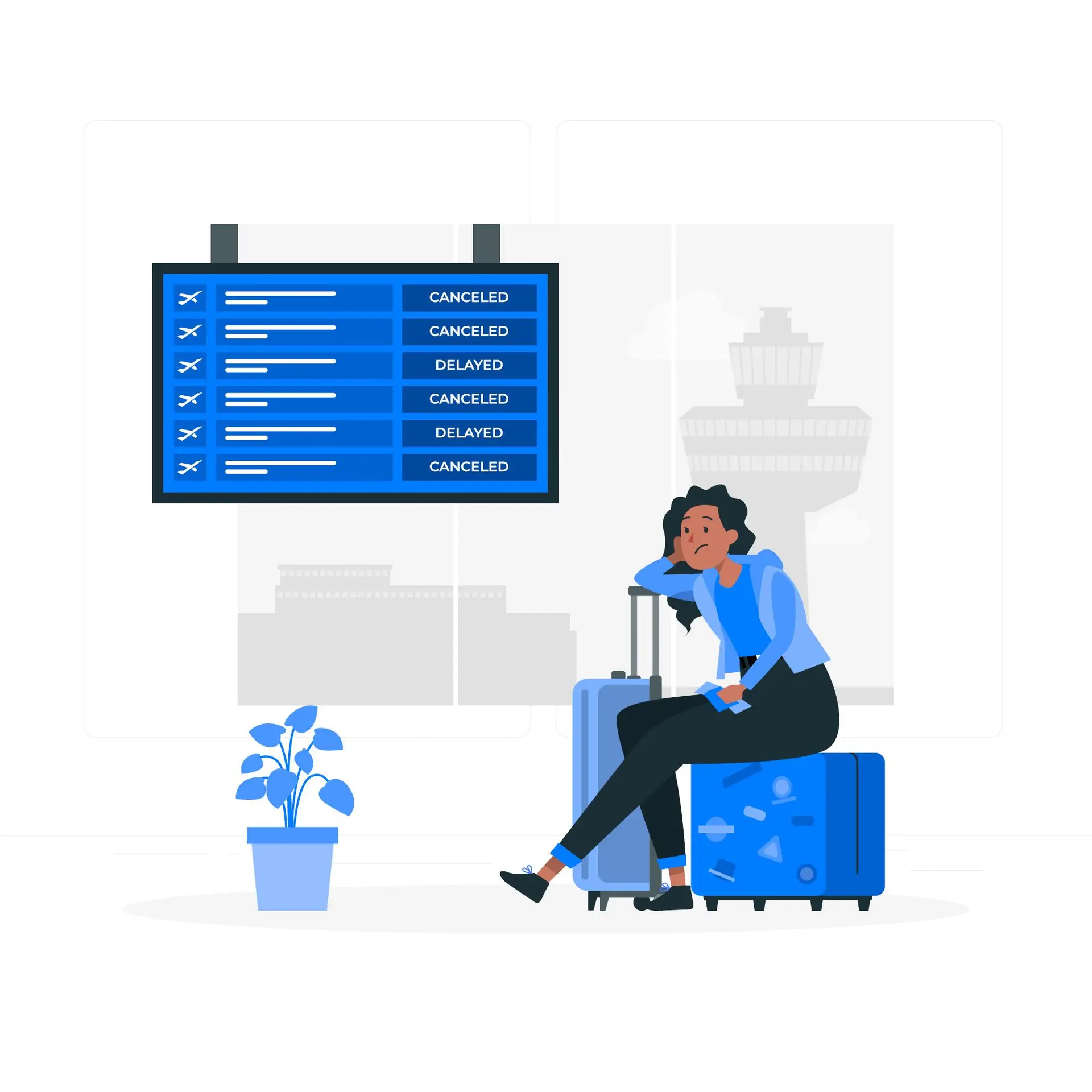Overview
Aviophobia, or the fear of flying, is a specific phobia that affects individuals worldwide, including a significant number of people in India. It is often characterized by extreme anxiety or panic attacks when thinking about or experiencing air travel. Given the rapid increase in air travel within India due to economic growth and expanding aviation networks, addressing aviophobia is essential to improving travel experiences and mental well-being.
Key Facts
- Prevalence in India: While global estimates suggest that 2.5% to 6.5% of the population suffers from aviophobia, data specific to India remains limited. However, increased domestic and international travel has led to a rising awareness of this condition.
- Common Triggers: Fear of turbulence, past negative flying experiences, fear of crashes, claustrophobia, and loss of control.
- Impact on Lifestyle: People with aviophobia may avoid flights altogether, impacting career opportunities, family commitments, and leisure activities.
- Gender Differences: Studies suggest that women are more likely to report aviophobia than men.
- Comorbid Conditions: Aviophobia often coexists with generalized anxiety disorder (GAD), panic disorder, or other phobias.
Symptoms and Patterns
Aviophobia manifests in various ways, ranging from mild discomfort to full-blown panic attacks. Common symptoms include:
- Physical Symptoms:
- Sweating, rapid heartbeat, shortness of breath
- Nausea, dizziness, or gastrointestinal discomfort
- Muscle tension or trembling
- Psychological Symptoms:
- Intense anxiety when thinking about flying
- Fear of losing control during a flight
- Catastrophic thoughts about crashing
- Behavioural Symptoms:
- Avoiding flights or making excessive preparations
- Seeking reassurance from others before traveling
- Relying on alcohol or medication to ease anxiety
Risk and Protective Factors
Risk Factors:
- Past Trauma: History of a traumatic flight experience, such as severe turbulence or an emergency landing.
- Anxiety Disorders: Individuals with generalized anxiety or panic disorders are more prone to aviophobia.
- Lack of Exposure: Limited flying experience can contribute to heightened fear.
- Media Influence: Frequent exposure to negative news about plane crashes can increase fear.
- Personality Traits: Individuals with high neuroticism or perfectionist tendencies may be more susceptible.
Protective Factors:
- Gradual Exposure: Repeated exposure to flights in a controlled manner can reduce fear.
- Education on Aviation Safety: Understanding the mechanics and safety of flying can ease anxiety.
- Relaxation Techniques: Practicing deep breathing, mindfulness, and meditation can help manage symptoms.
- Support System: Encouragement from friends, family, or therapists can facilitate confidence in flying.
Treatment and Care
Aviophobia is manageable with various treatment approaches, including:
- Cognitive Behavioural Therapy (CBT): Helps individuals challenge and reframe irrational fears related to flying.
- Exposure Therapy: Gradual exposure to flight-related stimuli to desensitize fear responses.
- Virtual Reality Therapy: Simulated flying experiences to help individuals practice coping strategies.
- Medication: In some cases, anti-anxiety medication may be prescribed for short-term relief.
- Relaxation and Breathing Techniques: Techniques such as progressive muscle relaxation and diaphragmatic breathing can reduce anxiety.
Psychological and Psychosocial Interventions
- Flight Anxiety Programs: Some airlines in India offer specialized courses to help individuals overcome fear of flying.
- Group Therapy: Sharing experiences with others facing similar fears can provide emotional support.
- Mindfulness-Based Interventions: Techniques like meditation and guided imagery can improve emotional regulation.
- Self-Help Books and Online Resources: Cognitive restructuring tools available online can assist in fear management.
- Behavioural Coaching: Working with a psychologist or life coach to develop coping strategies.
Conclusion
Aviophobia is a significant but treatable condition affecting many individuals in India. With increasing awareness, professional intervention, and self-help techniques, people can successfully overcome their fear of flying. As air travel continues to grow in India, addressing this fear is crucial for enhancing mobility, professional opportunities, and personal well-being.


